- Home
- Simon Winchester
The Professor and the Madman: A Tale of Murder, Insanity Page 4
The Professor and the Madman: A Tale of Murder, Insanity Read online
Page 4
He had a voracious appetite, indeed an impassioned thirst for all kinds of learning. He taught himself about the local geology and botany; he found a globe from which he could learn geography and foster a love for maps; he unearthed scores of textbooks from which he could take on the enormous burden of history; he observed and took pains to remember all the natural phenomena about him. His younger brothers would tell how he once awakened them late one night to show them the rising of Sirius, the Dog Star, whose orbit and appearance over the horizon he had calculated and that proved, to the family’s sleepy exultation, to be perfectly correct.
He particularly cherished encountering and interrogating people he met who proved to be living links with history: He once found an ancient who had known someone who was present when Parliament proclaimed William and Mary joint sovereigns in 1689; then again, his mother would recount over and over how she had heard tell of the victory at Waterloo; and when he had children himself he would allow them to be dandled on the knees of an elderly naval officer who was present when Napoleon agreed to surrender.
He left school at fourteen, as did most of the poorer children of the British Isles. There was no money for him to go on to the fee-paying grammar school in nearby Melrose, and in any case his parents enjoyed some confidence in the lad’s ability to teach himself—by pursuing, as he had vowed, the vita diligentissima. Their hopes proved well founded: James continued to amass more and more knowledge, if only (as he would admit) for the sake of knowledge itself, and often in the most eccentric of ways.
He engaged in furious digs at a multitude of archaeological sites all over the Borders (which, being close to Hadrian’s Wall, was a treasure trove of buried antiquities); he made attempts to teach the local cows to respond to calls in Latin; he would read out loud, by the light of a minute oil lamp, the works of a Frenchman with the grand name of Théodore Agrippa d’Aubigné, and translating for his family, who gathered about him, fascinated.
Once, trying to invent water wings made from bundles of pond iris, he tied them to his arms but was turned upside down by more buoyancy than he calculated, and would have drowned (he was a nonswimmer) had not his friends rescued him by pulling him from the lake with his five-foot-long bow tie. He memorized hundreds of phrases in Romany, the language of the passing Gypsies; he learned bookbinding; he taught himself to embellish his own writings with elegant little drawings, flourishes, and curlicues, rather like the monkish illuminators of the Middle Ages.
By seventeen this “argumentative, earnest, naïve” young Scot was employed in his hometown, as an assistant headmaster, eagerly passing on the knowledge that he had so keenly amassed; by twenty he was a full-fledged headmaster of the local subscription academy (“ages ten to sixteen, fees one guinea a term”); and with his brother Alexander he became a leading member of that most Victorian and Scottish of bodies, the Hawick branch of the Mutual Improvement Institute. He gave his first lecture—“Reading, Its Pleasures and Advantages”—and went on to present learned papers to the town’s Literary and Philosophical Society on his new passion of phonetics, on the origins of the pronunciation and the foundations of the Scottish tongue, and—once he had discovered its delights—on the magic of Anglo-Saxon.
And yet all this early promise seemed suddenly doomed, first by the onset of love and then by the upset of tragedy. For in 1861, when he was just twenty-four, James met and the following year married a handsome but delicate infant-school music teacher named Maggie Scott. Their wedding picture shows James a strangely tall, vaguely simian figure in his ill-fitting frock coat and baggy trousers; a man with hugely long, knee-brushing arms; an unkempt beard; hair already thinning near the peak; eyes narrow and intense: neither happy nor unhappy, but full of thought, his mind seemingly filled with a kind of distracted foreboding.
Two years later they had a baby girl they christened Anna. But, as was wretchedly commonplace at the time, she died in infancy. Maggie Murray herself then fell gravely ill with consumption and was said by the Hawick doctors to be unlikely to withstand the rigors of another long Scottish winter. The recommended treatment was to sojourn in the South of France but that, given James’s tiny schoolmastering wage, was quite out of the question.
Instead the forlorn couple took off for London and modest lodgings in Peckham. James Murray, now twenty-seven, had to his bitter disappointment been forced by his domestic circumstances to abandon all his current intellectual pursuits, all his digging and delving and his pronouncements on linguistics, phonetics, and the origins of words—on which topic he was then enjoying a lively correspondence with the notable scholar Alexander Melville Bell, father of the infinitely more famous Alexander Graham Bell.
Economic necessity and marital duty—though he was devoted to Maggie and never complained—had pressed him to become instead, and with a dreary predictability, a clerk in a London bank. With his employment, in starched cuffs and green eyeshade, perched on a high stool at the back of the head office of the Chartered Bank of India, it seemed as though the story might have come to an ignominious end.
Not so. Within just a matter of months he was back in the traces. He had renewed his eccentric pursuit of learning—studying Hindustani and Achaemenid Persian on his daily commute, trying to determine by their accents from which region of Scotland various London policemen came, lecturing on “The Body and its Architecture” before the Camberwell Congregational Church (where, as a confirmed and lifelong teetotaler, he was a keen member of the Temperance League), and even noting with amused detachment, while his still-sickly and well-loved Maggie was dying, that in her nightly delirium she lapsed into the broad Scots dialect of her childhood, abandoning the more refined tones of a schoolteacher. That small discovery, that marginal addition to his learning, went some way to helping him through the misery of her subsequent death.
A year later James was engaged to another young woman and a year later still, married. While he had clearly loved and admired Maggie Scott, it was soon abundantly clear that in Ada Ruthven, whose father worked for the Great Indian Peninsular Railway and was an admirer of Alexander von Humboldt, and whose mother claimed to have been at school with Charlotte Brontë, here was a woman who was far more his social and intellectual equal. They were to remain devoted, and to have eleven children together, the first nine, according to the wishes of James’s father-in-law, bearing the middle name Ruthven.
A letter that James Murray wrote in 1867, his thirtieth year, applying for a position with the British Museum, offers some of the flavor of his barely believable range of knowledge (as well as his unabashed candor in telling people about it):
I have to state that Philology, both Comparative and special, has been my favourite pursuit during the whole of my life, and that I possess a general acquaintance with the languages & literature of the Aryan and Syro-Arabic classes—not indeed to say that I am familiar with all or nearly all of these, but that I possess that general lexical and structural knowledge which makes the intimate knowledge only a matter of a little application. With several I have a more intimate acquaintance as with the Romance tongues, Italian, French, Catalan, Spanish, Latin & in a less degree Portuguese, Vaudois, Provençal and various dialects. In the Teutonic branch, I am tolerably familiar with Dutch (having at my place of business correspondence to read in Dutch, German, French & occasionally other languages), Flemish, German, Danish. In Anglo-Saxon and Moeso-Gothic my studies have been much closer, I having prepared some works for publication upon these languages. I know a little of the Celtic, and am at present engaged with the Sclavonic, having obtained a useful knowledge of the Russian. In the Persian, Achaemenian Cuneiform, & Sanscrit branches, I know for the purposes of Comparative Philology. I have sufficient knowledge of Hebrew and Syriac to read at sight the Old Testament and Peshito; to a less degree I know Aramaic Arabic, Coptic and Phoenician to the point where it was left by Genesius.
It somewhat beggars belief that the museum turned his job application down. Murray was initially crushed but soon recove
red. Before long he was consoling himself in a characteristic way—by comparing, in lexical terms, the sheep-counting numerology of the Wowenoc Indians of Maine with that of the moorland farmers of Yorkshire.
Murray’s interest in philology might have remained that of an enthusiastic amateur had it not been for his friendship with two men. One was a Trinity College, Cambridge, mathematician named Alexander Ellis, and the other a notoriously pigheaded, colossally rude phonetician named Henry Sweet—the figure on whom Bernard Shaw would later base his character Professor Henry Higgins in Pygmalion, which was transmuted later into the eternally popular My Fair Lady (in which Higgins was played, in the film, by the similarly rude and pigheaded actor Rex Harrison).
These men swiftly turned the amateur dabbler and dilettante into a serious philological scholar. Murray was introduced into membership of the august and exclusive Philological Society—no mean achievement for a young man who, it must be recalled, had left school at fourteen and had not thus far attended a university. By 1869 he was on the society’s council. In 1873—having left the bank and gone back to teaching (at Mill Hill School)—he published The Dialect of the Southern Counties of Scotland: It was a work that was to gild and solidify his reputation to the point of wide admiration (and to win him the invitation to contribute an essay on the history of the English language for the ninth edition of the Encyclopædia Britannica). It also brought him into contact with one of the most amazing men of Victorian England—the half-mad scholar-gypsy who was secretary of the Philological Society, Frederick Furnivall.
Some thought Furnivall—despite his devotion to mathematics, Middle English, and philology—a total clown, an ass, a scandalous dandy, and a fool (his critics, who were legion, made much of the fact that his father maintained a private lunatic asylum in the house where the young Frederick had grown up).
He was a socialist, an agnostic, and a vegetarian, and “to alcohol and tobacco he was a stranger all his life.” He was a keen athlete, obsessed by sculling, and was particularly fond of teaching handsome young waitresses (recruited from the ABC teashop in New Oxford Street) the best way to get the most speed out of a slender racing boat he had designed. A photograph of him survives from 1901: He wears an impish smirk, not least because he is surrounded by eight pretty members of the Hammersmith Sculling Club for Girls, content and well-exercised women whose skirts may be long but whose shirts lie snug on their ample breasts. In the background stands a stern Victorian matron, clad all in tough serge weeds, scowling.
Frederick Furnivall was indeed an appalling flirt. He was condemned by many as socially reprehensible for committing the doubly unpardonable sin of marrying a lady’s maid and then abandoning her. Dozens of editors and publishers refused to work with him: he was “devoid of tact or discretion…had a boyish frankness of speech which offended many and led him into unedifying controversies…his declarations of hostility to religion and to class distinctions were often unreasonable and gave pain.”
But he was a brilliant scholar, and, like James Murray, he had an obsessive thirst for learning; among his friends and admirers he could count Alfred, Lord Tennyson; Charles Kingsley; William Morris; John Ruskin—Doctor Minor’s London mentor, it would later turn out—and the Yorkshireborn composer Frederick Delius. Kenneth Grahame, a fellow sculler who worked at the Bank of England, came duly under Furnivall’s spell, wrote The Wind in the Willows and painted Furnivall into the plot as the Water Rat. “We learned em!” says Toad. “We taught em” corrects Rat. Furnivall may have been a cunning mischief-maker, but he was also often right.
He may have been Grahame’s mentor; but he was a much more significant figure in James Murray’s life. As the latter’s biographer was to say, admiringly, Furnivall was to Murray “stimulating and persuasive, often meddlesome and exasperating, always a dynamic and powerful influence, eclipsing even James in his gusto for life.”
He was in many ways a Victorian’s Victorian, an Englishman’s Englishman—and a natural choice, as the country’s leading philologist, to take a dominant role in the making of the great new dictionary that was then in the process of being constructed.
It was Furnivall’s friendship with and sponsorship of James Murray—as well as Murray’s links with Sweet and Ellis—that were to lead, ultimately, to the most satisfactory event of all. This occurred on the afternoon of April 26, 1878, at which time James Augustus Henry Murray was invited to Oxford, to a room in Christ Church College, Oxford, and to an awesome full meeting of the grandest minds in the land, the Delegates of the Oxford University Press.
They were a formidable group—the college dean, Henry Liddell (whose daughter Alice had so captivated the Christ Church mathematician Charles Lutwidge Dodgson that he wrote an adventure book for her, set in Wonderland); Max Müller, the Leipzig philologist, Orientalist, and Sanskrit scholar who now held Oxford’s chair of Comparative Philology; the Regius Professor of History, William Stubbs, the man who was credited in Victorian times with having made the subject worthy of respectable academic pursuit; the canon of Christ Church and classical scholar, Edwin Palmer; the warden of New College, James Sewell—and so on and so on.
High Church, high learning, high ambition: These were the Men Who Counted, the architects of the great intellectual constructions that originated during England’s haughtiest and most self-confident time. As Isambard Kingdom Brunel was to bridges and railways, as Sir Richard Burton was to Africa, and as Robert Falcon Scott was soon to be to the Antarctic, so these men were the best, the makers of indelible monuments to learning—of the books that were to be the core foundation of the great libraries all around the globe.
And they had a project, they said, in which Doctor Murray might well be very interested indeed. A project that, unwittingly on the parts of all concerned, was eventually to put James Murray on a collision course with a man whose interests and whose piety were curiously congruent with his own.
At first blush William Minor might seem to have been a man more marked by his differences from Murray than by such similarities as these. He was rich where Murray was poor. He was of high estate where Murray’s condition was irredeemably, if respectably, low. And though he was almost the same age—just three years separated them—he had been born both of a different citizenship and, as it happens, in a place that was almost as many thousands of miles away from Murray’s British Isles as it was then thought prudent and practicable for ordinary people to reach.
3
THE MADNESS OF WAR
Lunatic (liū nătik), a. [ad. late L. lūnātic-us, f. L. lūna moon: see -ATIC. Cf. F. lunatique, Sp., It. lunatico.] A. adj.
1. Originally, affected with the kind of insanity that was supposed to have recurring periods dependent on the changes of the moon. In mod. use, synonymous with INSANE; current in popular and legal language, but not now employed technically by physicians.
Ceylon, the lushly overgrown tropical island that seems to hang from India’s southern tip like a teardrop—or a pear or a pearl or even (some say) a Virginia ham—is regarded by priests of the world’s stricter religions as the place to which Adam and Eve were exiled after their fall from grace. It is a Garden of Eden for sinners, an island limbo for those who yielded to temptation.
These days it is called Sri Lanka; once the Arab sea traders called it Serendib, and in the eighteenth century Horace Walpole created a fanciful story about three princes who reigned there, and who had the enchanting habit of stumbling across wonderful things quite by chance. Thus was the English language enriched by the word serendipity, without its inventor, who never traveled to the East, ever really knowing why.
But as it happens Walpole was more accurate than he could ever have known. Ceylon is in reality a kind of postlapsarian treasure island, where every sensual gift of the tropics is available, both to reward temptation and to beguile and charm. So there are cinnamon and coconut, coffee and tea; there are sapphires and rubies, mangoes and cashews, elephants and leopards; and everywhere a rich, hot, sweetly moist bre
eze, scented by the sea, spices, and blossoms.
And there are the girls—young, chocolate-skinned, ever-giggling naked girls with sleek wet bodies, rosebud nipples, long hair, coltish legs, and scarlet and purple petals folded behind their ears—who play in the white Indian Ocean surf and who run, quite without shame, along the cool wet sands on their way back home.
It was these nameless village girls—the likes of whom had frolicked naked in the Singhalese surf for scores of years past, just as they still do—that young William Chester Minor remembered most. It was these young girls of Ceylon, he later said he was sure, who had unknowingly set him on the spiral path to his eventually insatiable lust, to his incurable madness, and to his final perdition. He had first noticed the erotic thrill of their charms when he was just thirteen years old: It was to inflame a shaming obsession with sexuality that inspired his senses and sapped his energies from that moment on.

 The Surgeon of Crowthorne
The Surgeon of Crowthorne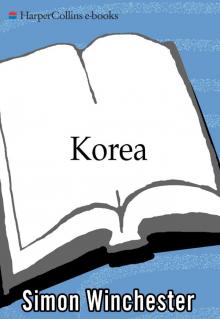 Korea: A Walk Through the Land of Miracles
Korea: A Walk Through the Land of Miracles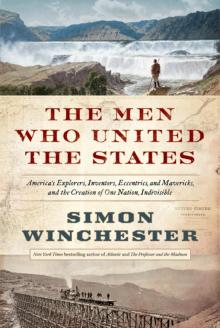 The Men Who United the States: America's Explorers
The Men Who United the States: America's Explorers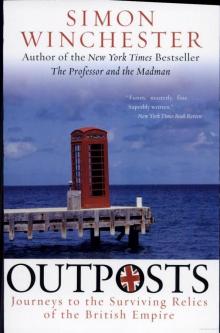 Outposts: Journeys to the Surviving Relics of the British Empire
Outposts: Journeys to the Surviving Relics of the British Empire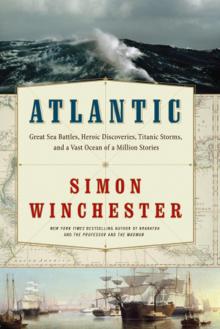 Atlantic: Great Sea Battles, Heroic Discoveries, Titanic Storms
Atlantic: Great Sea Battles, Heroic Discoveries, Titanic Storms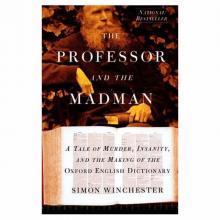 The Professor and the Madman: A Tale of Murder, Insanity
The Professor and the Madman: A Tale of Murder, Insanity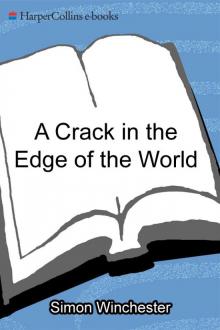 A Crack in the Edge of the World
A Crack in the Edge of the World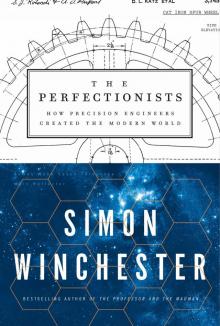 The Perfectionists: How Precision Engineers Created the Modern World
The Perfectionists: How Precision Engineers Created the Modern World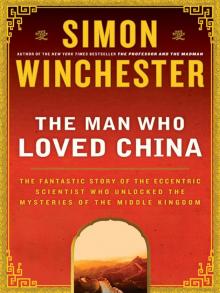 The Man Who Loved China: The Fantastic Story of the Eccentric Scientist
The Man Who Loved China: The Fantastic Story of the Eccentric Scientist The River at the Center of the World: A Journey Up the Yangtze
The River at the Center of the World: A Journey Up the Yangtze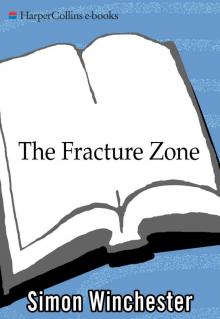 The Fracture Zone: My Return to the Balkans
The Fracture Zone: My Return to the Balkans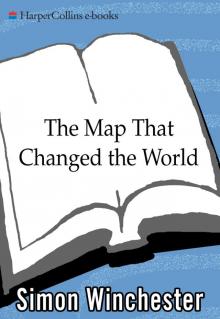 The Map That Changed the World
The Map That Changed the World Krakatoa: The Day the World Exploded
Krakatoa: The Day the World Exploded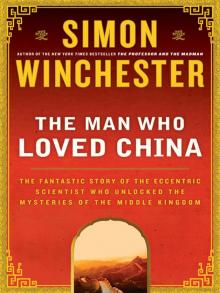 The Man Who Loved China
The Man Who Loved China The River at the Centre of the World
The River at the Centre of the World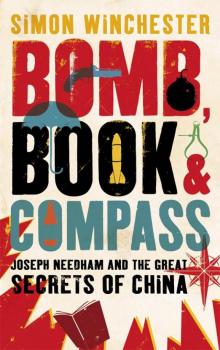 Bomb, Book and Compass
Bomb, Book and Compass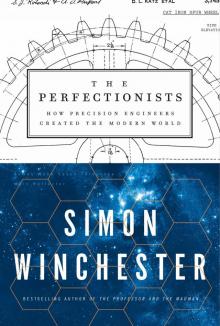 The Perfectionists
The Perfectionists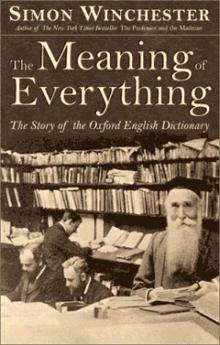 The Meaning of Everything
The Meaning of Everything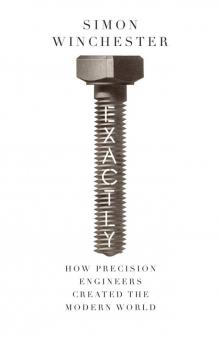 Exactly
Exactly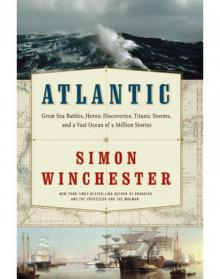 Atlantic
Atlantic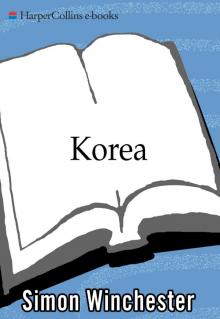 Korea
Korea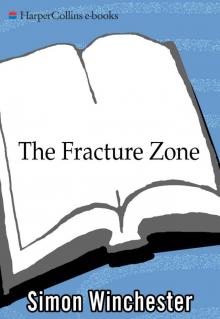 The Fracture Zone
The Fracture Zone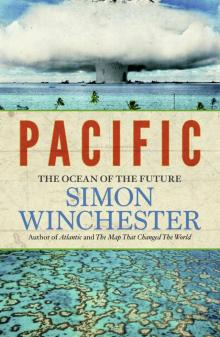 Pacific
Pacific Krakatoa
Krakatoa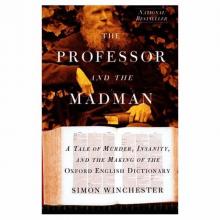 The Professor and the Madman
The Professor and the Madman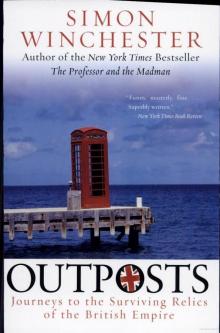 Outposts
Outposts